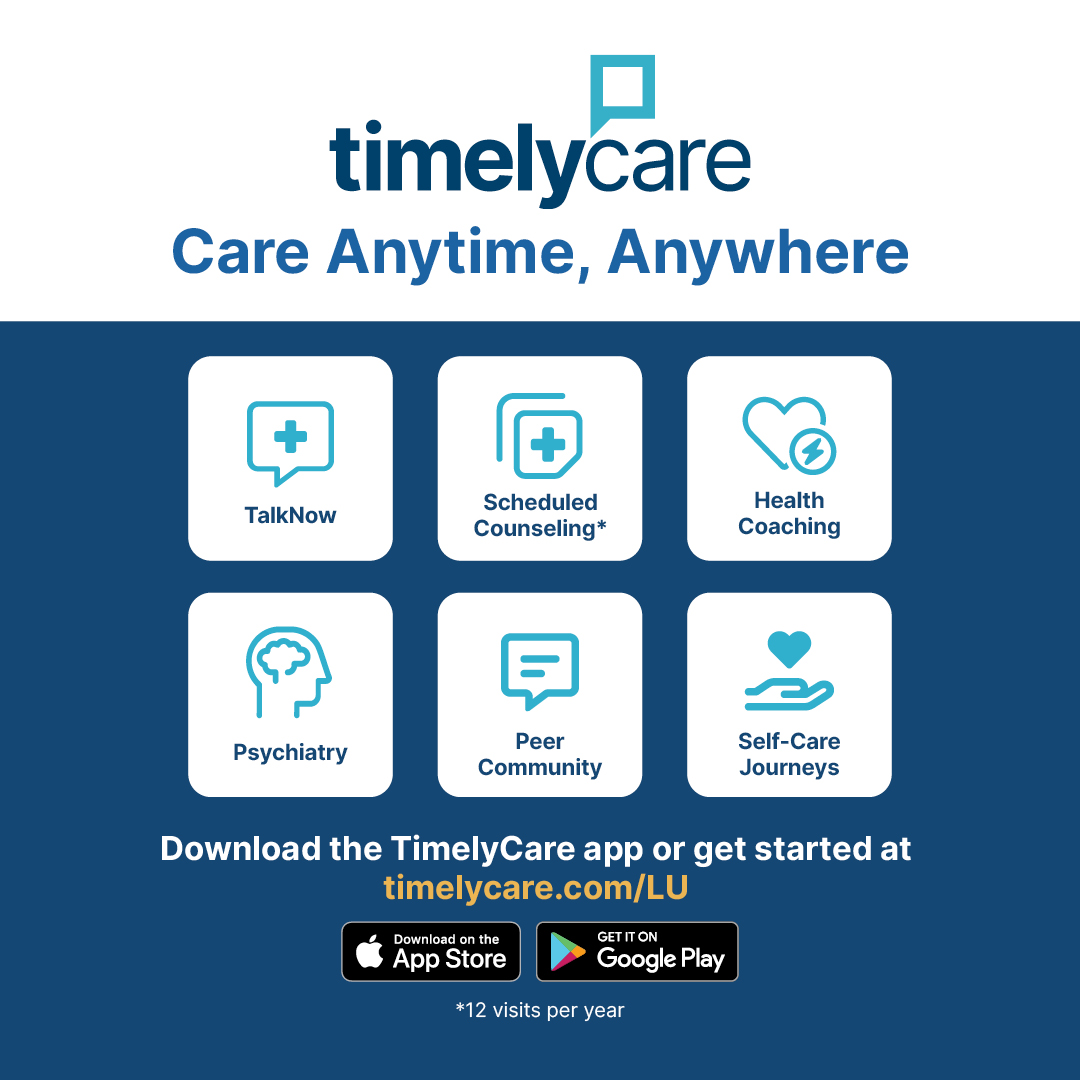SELF-HELP RESOURCES
Anxiety
Colleges are designed to be challenging academically, personally, and socially. Some anxiety is a natural by-product of the accelerated pace of learning and growth. To be sure, everyone feels anxious in certain situations, but anxiety disorders can make it difficult for students to function.
Anxiety is a feeling of worry that can be a completely normal response to stress. However, it can also be out of proportion to what is going on or be impossible to control. Anxiety disorders are the most common mental illnesses in the US. Anxiety can feel so overwhelming that a person’s ability to work, study, interact with people, or follow a daily routine is affected.
Contrary to what prior generations of your family may have believed, anxiety disorders are not “all in one’s head.” Anxiety can be a real medical condition, developing from a complex set of biological and environmental factors, including genetics, biochemistry and traumatic life events.
Fortunately, it is possible to manage anxiety with counseling and/or medication.
Signs and Symptoms of Anxiety Disorders
- Intense episodes of fear or panic
- Recurring nightmares
- Avoidance of social situations
- Difficulty concentrating
- Repeated, unwanted thoughts (obsessions)
- Sleep disturbances
- Upsetting, intrusive memories of a traumatic event
- Physical symptoms such as nausea, stomach pain, rapid heart rate, muscle tension, sweating, shaking, dizziness, numbness, or difficulty breathing
The above information was taken with permission from The Jed Foundation, https://www.jedfoundation.org/
Self-Assessment for Anxiety
- Have you had extreme worry or anxiety the past few months?
- Have you had recurrent periods of intense and sudden fear or discomfort that could be classified as a panic attack?
- Do you have specific fears to an object or situation that create anxiety or distress?
- Have you had reoccurring obsessions and compulsions that create distress in your life?
- Have you had continual reoccurring anxieties of a traumatic event that occurred?
If you answered yes to any of these questions, and it has hindered your normal functioning, then it is recommended that you come to Counseling & Psychological Services.
Links to Additional Information on Anxiety Disorders
Books on Anxiety
- The Christian and Anxiety– Hans Urs von Balthasar
- Stop Obsessing! How to Overcome Your Obsessions and Compulsions– Edna B. Foa, Ph.D. & R. Reid Wildson, Ph. D.
- The Anxiety Cure – Dr. Archibald D. Hart
- The Anxious Christian: Can God use Your Anxiety for Good? Rhett Smith
- The 10 Best-Ever Anxiety Management Techniques– Margaret Wehrenberg
While these books and links are resources to use, Counseling & Psychological Services at Liberty University is not endorsing these books and websites or the authors of the books or websites.
Services
Contact
*For emergency assistance after office hours, please contact your Resident Director or call the LUPD emergency line at (434) 592-3911.
Office Hours
Monday - Friday: 8:00 a.m. - 4:30 p.m.
*Closed on Wednesdays from 10 a.m. - 12 p.m.
Our schedule is modified during summer months and semester breaks.
Make a Report
Speak up if you witness suspicious behavior or activity.



